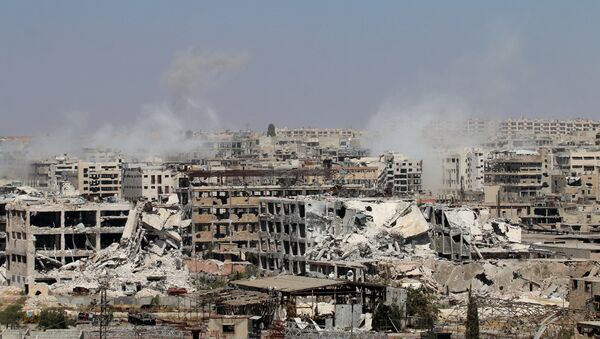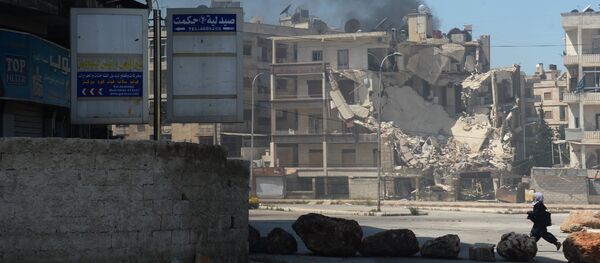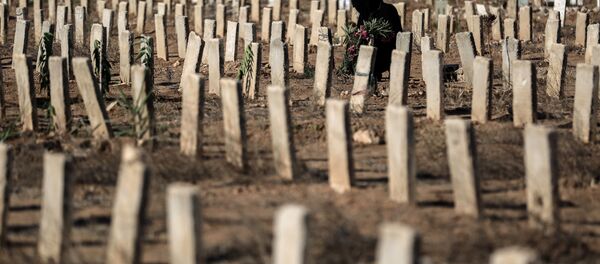A local man who became a victim of the attack spoke to Sputnik Arabic about his experience. "I was near where one of the shells had dropped. I quickly got the call to extinguish the fire in the al-Awamid market, but after arriving at the scene, another bomb dropped near the first. After a few minutes, I began to feel a shortness of breath and nausea; I was given help on the spot and then taken to the hospital – it saved my life."
A source at a local hospital informed the news agency that people arrived to local hospitals in serious condition after inhaling toxic gas. Some of the victims died on their way to the hospital. Symptoms of the poison gas included blurred vision, vomiting and shortness of breath. The shells were suspected to contain chlorine gas.
Dr. Mohammed Hazouri, the chairman of the city's public health service, told Sputnik that "over five people were killed by the gas and another eight died of asphyxiation (suffocation), after the area of the old city of Aleppo came under fire by these shells, fired by the Harakat Nour al-Din al-Zenki militant group."
According to Sputnik Arabic's commentary, "the use of poisonous gas by the armed opposition which Washington classifies 'moderate' is a serious indication of the level of support which the US is providing to the armed movement engaged in acts of terrorism against civilians, using prohibited weapons."
Earlier, the same group beheaded a 12-year-old boy captured near a refugee camp outside the city, sparking outrage around the world.
Harakat Nour al-Din al-Zenki, considered a moderate rebel group by some Western countries, has long been considered one of the most significant rebel factions holed up areas of eastern and northern Aleppo outside government control. International human rights groups have repeatedly charged the jihadi group of human rights violations, including the abduction and torture of journalists and humanitarian workers. In late July, the group fired rockets into a park in west Aleppo, killing ten and injuring over 40 others.
On Wednesday, State Department Spokesman Mark Toner said that the US State Department was not aware of reports that chemical weapons had been used against civilians in Aleppo.
The United States and its allies have been repeatedly accused of supporting jihadist Islamist groups that they consider 'moderate'. Earlier this week, video footage emerged showing a large cache of US-made weapons in a city district formerly controlled by the jihadists. The stash included US and European-made grenades and missile launchers, mortars and ammunition.




